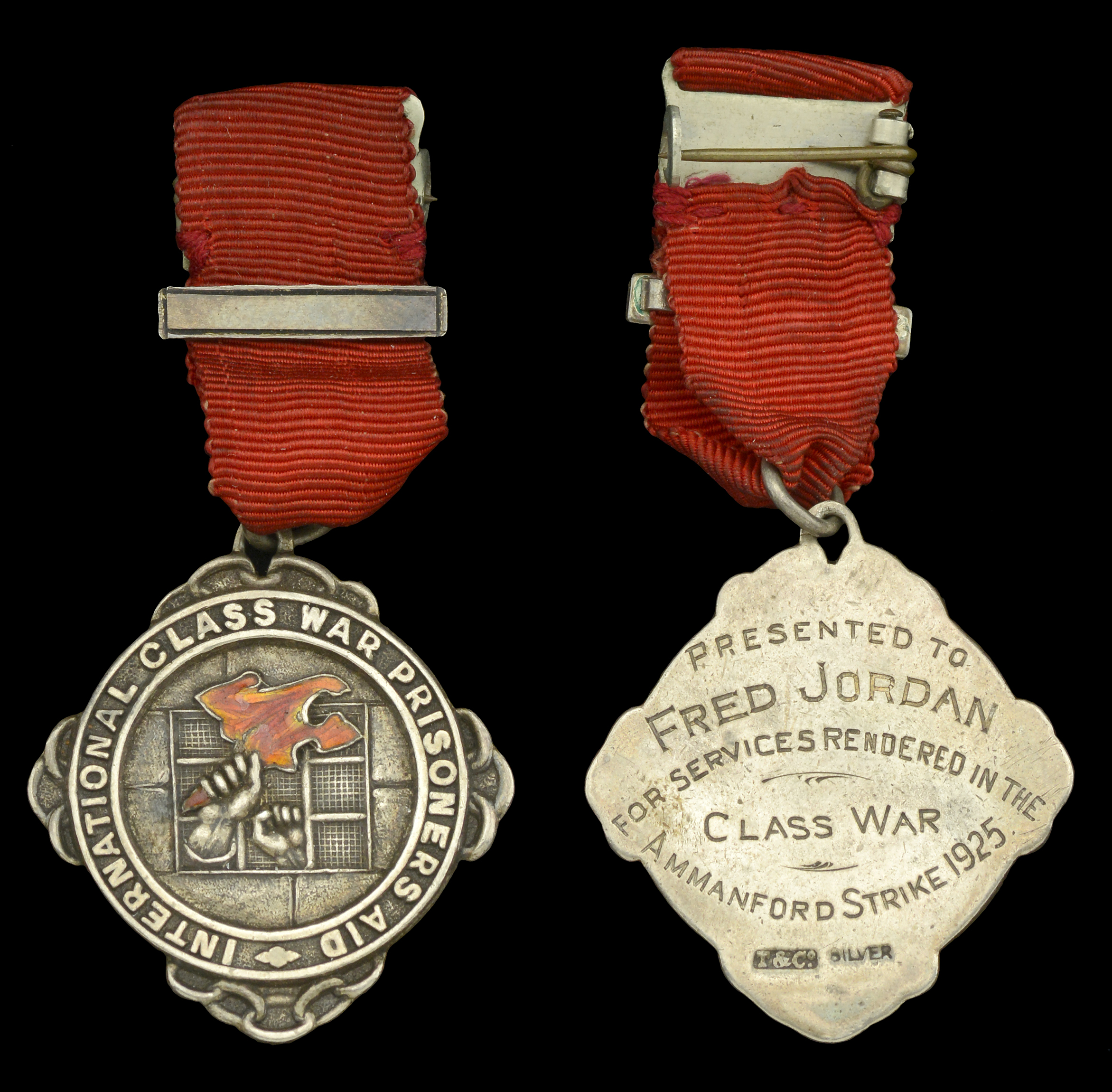International Class War Prisoners Aid Medal, 33mm, silver and enamel, the obverse centre depicting two hands reaching out from behind a barred prison window, one hand clasping a red enamelled flaming torch or red flag, embossed around ‘International Class War Prisoners Aid’, the reverse engraved ‘Presented to Fred Jordan For Services Rendered in the Class War, Ammanford Strike 1925’, suspended from a narrow red riband with pin brooch and an additional plain silver ribbon clasp, possibly noting a second term of imprisonment, in somewhat distressed case, nearly extremely fine, rare £140-£180 --- The International Class War Prisoners Aid Society, founded in 1924, was an organisation formed by the Communist Party of Great Britain, its aim being to give legal aid, financial assistance and moral support to workers who were imprisoned or lost jobs due to taking direct action. The Ammanford anthracite strike of 1925 began on 13 July 1925, and for a period of 10 days the Carmarthenshire town was a virtual battleground as the police and miners struggled to gain control of the streets. The unrest spread across the Dulais Valley and the Vale of Neath. Fearing civil unrest and major violence the authorities called in police from outside the area and they billeted across the town and valley. The miners were protesting against two of the largest mine-owning companies in South Wales, United Anthracite Collieries and Amalgamated Anthracite Collieries, who as employers had decided to unilaterally alter the terms and conditions of employment of the miners and ignore the long-established seniority rules regarding employment in the pits. The worst incident became known as ‘The Battle of Ammanford’ which began when 200 policemen, billeted in the old brewery at nearby Gwaun Cae Gurwen, were ambushed and attacked by miners on the Pontamman Bridge. The police were on their way to deal with a picket at No. 2 pit in Ammanford and walked, totally unsuspecting, into the trap. The ‘battle’ lasted from 10.30 p.m. at night until 3:00 a.m. in the morning before the miners were pushed back and the police at last managed to gain control of the area. Protests and skirmishes continued throughout the early summer months. Finally, the mine owners gave in and agreed to recognise the seniority rule and the miners returned to work on 2 August. However, the return to work was not the end of the matter. Nearly 200 miners faced prosecution for their part in the riots, 58 of whom received prison sentences of between two and 18 months. Each of the miners imprisoned was awarded a medal and a scroll by the International Class War Prisoners Aid Association on their release. The Daily Herald of 12 December 1925, carried an article which covered the arrest, trial and imprisonment of Fred Jordan. He was charged at Carmarthen Crown Court on 11 December 1925, together with eight other colliers, with unlawful assembly at Pantyfynnon Colliery. All nine defendants were found guilty, and Fred Jordan was sentenced to a month’s imprisonment to run concurrently with a previous similar sentence.
Auctioneer's Buyers Premium: 24% (+VAT)
There is an additional charge of 4.95% (+VAT/sales tax)
See Full Terms And Conditions





